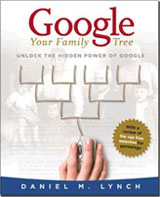|
|
|
|

Frequently Asked Questions
 Since 2000, we have been responding to individual census and genealogy questions via phone and email as time has allowed. Over time, we realized that many of the same questions were being asked on a fairly regular basis. That has led us to create this FAQs (or Frequently Asked Questions) page. Please take a moment to scan the questions and corresponding answers.
Since 2000, we have been responding to individual census and genealogy questions via phone and email as time has allowed. Over time, we realized that many of the same questions were being asked on a fairly regular basis. That has led us to create this FAQs (or Frequently Asked Questions) page. Please take a moment to scan the questions and corresponding answers.
In some cases, the answer will include a link to another part of our site or perhaps to some other site on the Internet that we feel does a good job responding to the question.

Why are Census Records so important for Genealogy research?
Census records are a unique source of information for family historians because they document an entire household or family group at regular intervals in time. Generally occurring every ten years, census records show the movements and growth of a family. The many data fields report information on age, place of birth, occupation, ethnicity, arrival in America (for those not born in the U.S.), and information about military service.
How Can I Search Actual Census Records & Images Using This Site?
This site provides tips and information to help you understand how to research census records. There are search templates and links throughout this site which connect to a range of census data archives hosted by Ancestry.com. While some of these data sets are available for free, most require either a free trial, monthly or annual subscription. Online access to census records is an extremely convenient means to advance your research, but only you can decide if access is something you wish to pay for.
What types of information can I expect to find by researching the Census?
For the more recent census records, you can expect to find names for all members living in a household, the relationship between the head of household and each member of the household, the age, gender, race, birth place, and occupation for each person. In addition, information about the place of birth of each parent, information about education (can read, can write, can speak english), citizenship status (alien, papers filed, naturalized), and for immigrants th e information about their year of arrival in America. There are examples of census schedules throughout this site.
Why can't I access anything more recent than the 1930 Census?
To ensure that all residents would be comfortable sharing information with government officials and to protect their privacy for a reasonable period of time, the United States uses a 72-year privacy rule. This means that while statistics for a census are made available, individual census returns are kept private until 72 years after the census date. The 1940 census will not be available for public inspection until April 2012.
I've already looked, but cannot find my family in the Census — Now what?
This site discusses a number of strategies for locating family members in the census. If you have other data sources indicating your family is in the census, but have not yet been able to find them, then you should consider variations in the spelling of their surname.
One useful strategy is to look for other members that may be living in the household. If, for example, your grandfather cannot be found — consider searching for his brother or sister if you have data supporting the believe that they were all part of the same household. You should always look in the most recent census available for the period during which the individual was living. If they died in the mid-1930s, then search the 1930 census first. If you come up empty, then step back to the 1920 census, then 1910, and so on.
I'm not interested in subscribing to any online service,
is there any way I can still search the census using the Internet?
The U.S. Census has been digitized and transcribed for Internet access by more than one commercial service provider. Ancestry.com is a well known service available to consumers and is also available free at most regional branches of the National Archives and family history centers of the LDS Church. Some local private and public libraries may also subscribe to this service, so you should check for availability by calling the library in your town. In addition to Ancestry, the U.S. Census is available to the library and educational market through Heritage Quest Online.
|
|



 Since 2000, we have been responding to individual census and genealogy questions via phone and email as time has allowed. Over time, we realized that many of the same questions were being asked on a fairly regular basis. That has led us to create this FAQs (or Frequently Asked Questions) page. Please take a moment to scan the questions and corresponding answers.
Since 2000, we have been responding to individual census and genealogy questions via phone and email as time has allowed. Over time, we realized that many of the same questions were being asked on a fairly regular basis. That has led us to create this FAQs (or Frequently Asked Questions) page. Please take a moment to scan the questions and corresponding answers.
